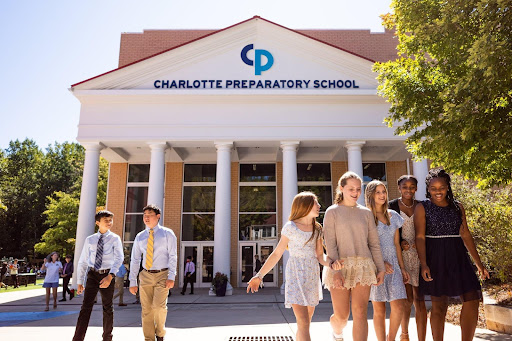Deciding where to enroll your children in school is one of the most important parenting decisions you will make. And there is such a plethora of options—public, private, charter, magnet—it can be overwhelming. With cost being the primary differentiator between public and private education, many parents wonder if the tuition price tag of a private school is worth it. Are students who graduate from private schools better off compared to their peers who graduate from public schools? The answer isn’t straightforward and while there are many pros and cons to consider, there are elements of private schools that undoubtedly give students advantages on both the academic, and social-emotional fronts.
Let’s break down the factors you should keep in mind when deciding on a path for your child:
School Curriculum and Academic Rigor
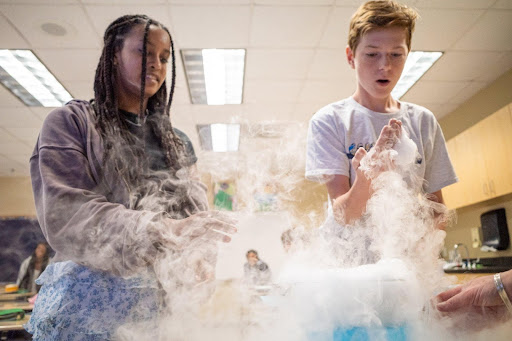 The primary difference between public and private schools stems from how each is funded. With public schools relying on state and federal funding, their curriculums are restricted by significant regulation. Through standardized testing of their students, these schools are evaluated on a regular basis to ensure that they are meeting certain thresholds, which leads even the best teachers to devote precious curricular instruction time to “teaching to the test.”
The primary difference between public and private schools stems from how each is funded. With public schools relying on state and federal funding, their curriculums are restricted by significant regulation. Through standardized testing of their students, these schools are evaluated on a regular basis to ensure that they are meeting certain thresholds, which leads even the best teachers to devote precious curricular instruction time to “teaching to the test.”
Private schools, on the other hand, are funded by tuition money. This gives them the latitude to research and implement cutting-edge, innovative curricula and teaching methodology, targeted to serving every student’s needs. With the freedom from legislative mandates and testing requirements, teachers in private schools can intentionally customize their teaching style and lesson plans to engage every child. This encourages the natural blossoming of questions and ideas and fosters enriching dialogue and conversation with students so that their voices are heard, and they have space to express their thoughts with confidence. Add to this the resources dedicated to social-emotional intelligence, global citizenship, the arts, physical activity, and foreign language, and you have a compelling proposition.
Culture and Community
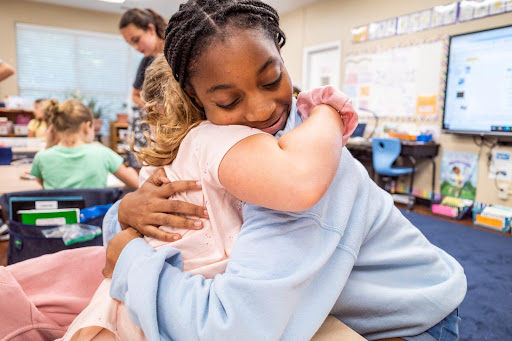 A private school education requires families to make a significant investment in their child’s educational journey. This means that students attending private schools come from families where education is highly valued. These families are looking to surround their children with others who prize education in a community of motivated learners, where education is considered a privilege. With parents holding schools accountable, school staff is also motivated to provide an environment where children are challenged and nurtured.
A private school education requires families to make a significant investment in their child’s educational journey. This means that students attending private schools come from families where education is highly valued. These families are looking to surround their children with others who prize education in a community of motivated learners, where education is considered a privilege. With parents holding schools accountable, school staff is also motivated to provide an environment where children are challenged and nurtured.
While public schools have the advantage of strengthening bonds between neighbors and connecting families living in close proximity to each other, these relationships often fade when you consider that the average public elementary school is exponentially larger than an independent elementary school. The level of community connectedness in private schools, facilitated by strong parental involvement and committed faculty and staff, is therefore significantly greater, creating an environment where families know each other, teachers know every child, and every stakeholder is vested in ensuring student success above all else.
“At the private school, personal engagement was the new “cool,” and any interruption was going to annoy everybody—not just the teacher.”
Excellence in Teaching
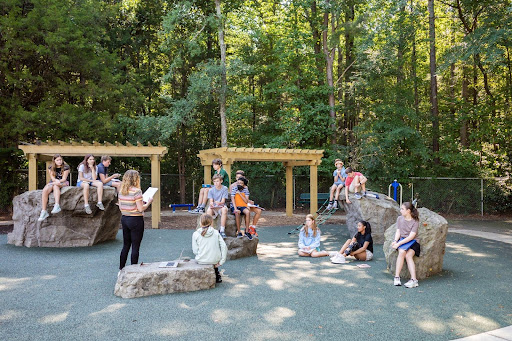 Teaching positions at private schools are highly sought after by excellent teachers. What makes these jobs so attractive? Small class sizes, an emphasis on professional development, freedom to tailor teaching methodology, and fewer behavioral issues are just some of the perks. Even the most experienced teachers can get burned out trying to keep up with large class sizes and smothering regulations at public schools. Students deserve teachers who are happy, passionate, and supported by their school administration.
Teaching positions at private schools are highly sought after by excellent teachers. What makes these jobs so attractive? Small class sizes, an emphasis on professional development, freedom to tailor teaching methodology, and fewer behavioral issues are just some of the perks. Even the most experienced teachers can get burned out trying to keep up with large class sizes and smothering regulations at public schools. Students deserve teachers who are happy, passionate, and supported by their school administration.
Student-teacher ratios at public schools in the Charlotte-Mecklenburg Schools system hover around 18:1, more than twice that of private schools. Due to the smaller class sizes in private schools, it is easier for teachers to build meaningful relationships with students and their families, and personalize the learning process for each student.
Key Takeaways
 1. Private schools foster a love of learning in students and a sense of investment in families.
1. Private schools foster a love of learning in students and a sense of investment in families.
2. Private school students have more freedom to explore specialized topics.
3. Teachers at private schools have more freedom to share their expertise.
4. Members of a private school’s community are unified by common values that led them to choose that specific school.
5. Low student-to-teacher ratios at private schools help teachers personalize student learning.
We at Charlotte Prep know how important your child’s education is to you. Now that you’ve learned more about the advantages of private and independent schools, you can make an informed decision about what kind of school your child should attend. If personalized instruction, specialized classes, and a school culture that promotes lifelong learning sound like the ideal school for your child, a private school may be your best option.
About Charlotte Preparatory School
Charlotte Preparatory School is a PreK-8 independent school in south Charlotte serving 400 students. Charlotte Prep empowers children to write their own story through our distinctive academic model, intentionally small size, and embracing community. Our PreK-8 structure is a research-proven model that celebrates every stage of childhood. Our students stay a step removed from the presence and pressures of high school, allowing them to be children a little longer and leaders a little sooner.
If you’re interested in learning more about Charlotte Prep, please visit our website.
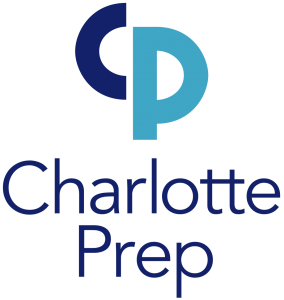
Charlotte Preparatory School
212 Boyce Road
Charlotte, NC 28211
(704) 366-5994
Website | Facebook | Instagram | Twitter

